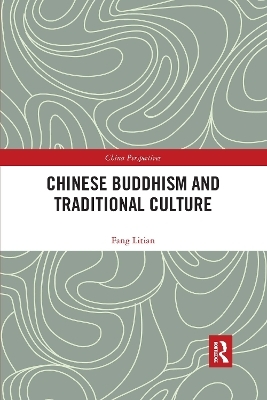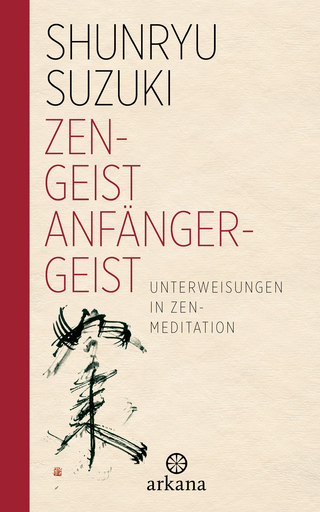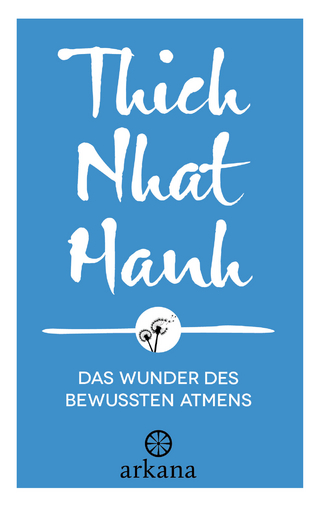
Chinese Buddhism and Traditional Culture
Routledge (Verlag)
978-0-367-66391-9 (ISBN)
- Titel z.Zt. nicht lieferbar
- Versandkostenfrei innerhalb Deutschlands
- Auch auf Rechnung
- Verfügbarkeit in der Filiale vor Ort prüfen
- Artikel merken
Since the first century, when Buddhism entered China, the foreign religion has influenced and been influenced in turn by traditional Chinese culture, and eventually became an important part of it. That is one of the great historical themes not only for China but also for East Asia.
This book explores the elements of Buddhism, including its classics, doctrines, system, and rituals, to reveal the basic connotation of Buddhism as a cultural entity. Regarding the development of Buddhism in China, it traces the spread in chronological order, from the introduction in Han Dynasties (202 BC–220 AD), to the prosperity in the Sixteen Kingdoms (ca. 304–439 AD), and then to the decline since the Five Dynasties (907–ca. 960 AD). It is noteworthy that the Buddhist schools in the Southern and Northern Dynasties (420–589 AD) and the Buddhist sects in Sui and Tang Dynasties (581–907 AD) contributed to the sinicization of Buddhism. This book also deals with the interesting question of the similarities and differences between Chinese Buddhism and Indian Buddhism, to examine the specific characters of the former in terms of thought and culture. In the last chapter, the external influence of Chinese Buddhism in East Asia is studied.
Scholars and students in Buddhism and Chinese culture studies, especially those in Buddhist countries, will benefit from the book. Also, it will appeal to readers interested in religion, Chinese culture, and ancient Chinese history.
Fang Litian is a former first grade professor and doctoral tutor of Department of Religious Studies, School of Philosophy, Renmin University of China, Director of Buddhism and Religious Theory Institute, and Director of the Institute for Advanced Study of Religion. He has served successively as the vice president and consultant of China Religious Society, executive vice president of the China Philosophy History Association, chief editor of the journal History of Chinese Philosophy, member of the Social Science Council of the Ministry of Education, and librarian of the Central Research Institute of Culture and History. His monographs include Treatise of Buddhism in Wei, Jin, Northern and Southern Dynasties, Buddhist Philosophy, Chinese Buddhism and Traditional Culture, and The Essential Meaning of Chinese Buddhist Philosophy (Volumes 1 and 2), among which Buddhist Philosophy won the honorary award of the first China Book Award , and The Essential Meaning of Chinese Buddhist Philosophy won the sixth national book award.
Contents
Chapter 1 The Creation, Evolution and Dissemination of Indian Buddhism *
Chapter 2 Buddhism's Introduction into China and Its Change and Development *
Chapter 3 Various Buddhist Classics *
Chapter 4 The Basic Doctrines of Buddhism *
Chapter 5 Buddhist System and Ritual *
Chapter 6 Buddhist Temple Hall *
Chapter 7 Buddhist Monuments in China *
Chapter 8 The Source of Basic Characteristics of Chinese Buddhism *
Chapter 9 The External Influence of Chinese Buddhism *
| Erscheinungsdatum | 01.10.2020 |
|---|---|
| Reihe/Serie | China Perspectives |
| Verlagsort | London |
| Sprache | englisch |
| Maße | 156 x 234 mm |
| Gewicht | 440 g |
| Themenwelt | Geisteswissenschaften ► Religion / Theologie ► Buddhismus |
| Sozialwissenschaften ► Soziologie ► Spezielle Soziologien | |
| ISBN-10 | 0-367-66391-0 / 0367663910 |
| ISBN-13 | 978-0-367-66391-9 / 9780367663919 |
| Zustand | Neuware |
| Informationen gemäß Produktsicherheitsverordnung (GPSR) | |
| Haben Sie eine Frage zum Produkt? |
aus dem Bereich


